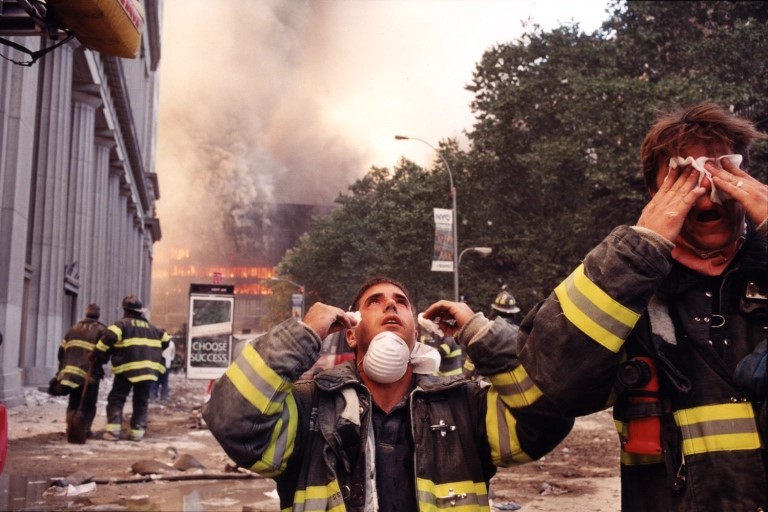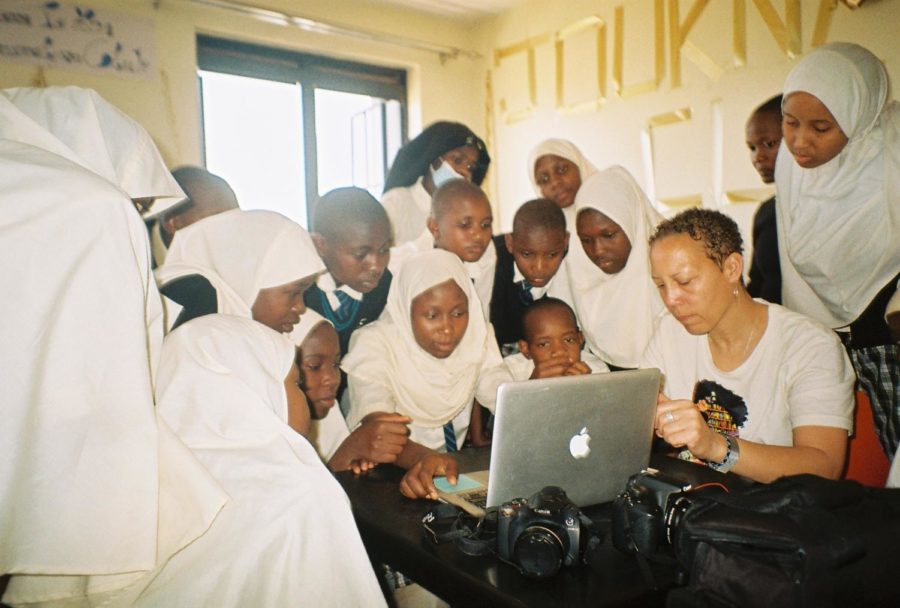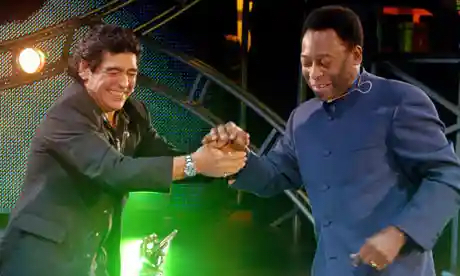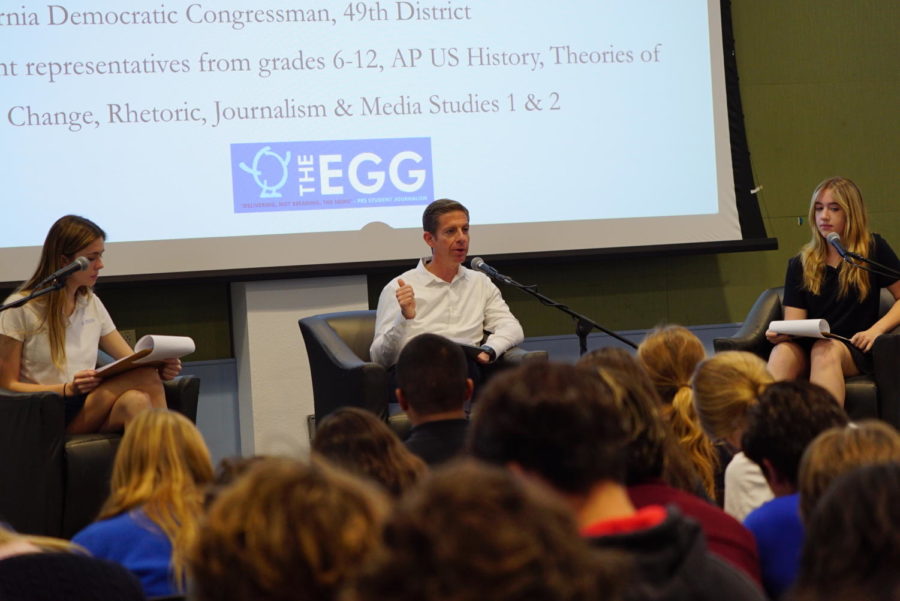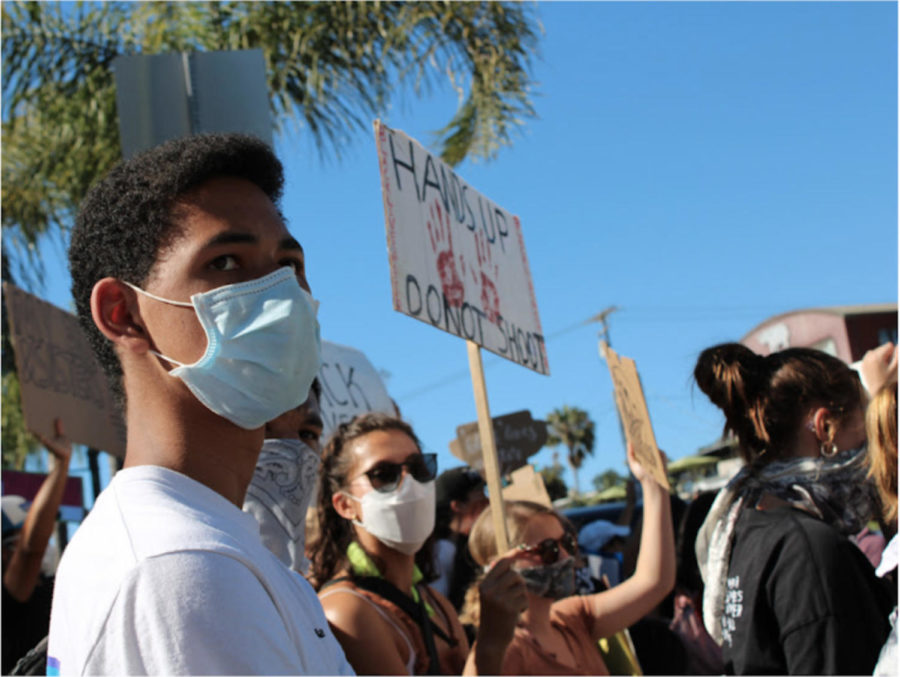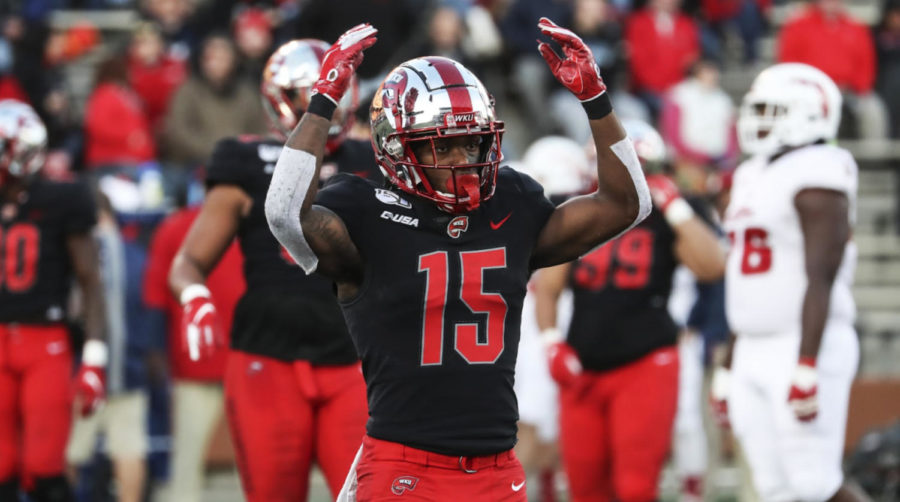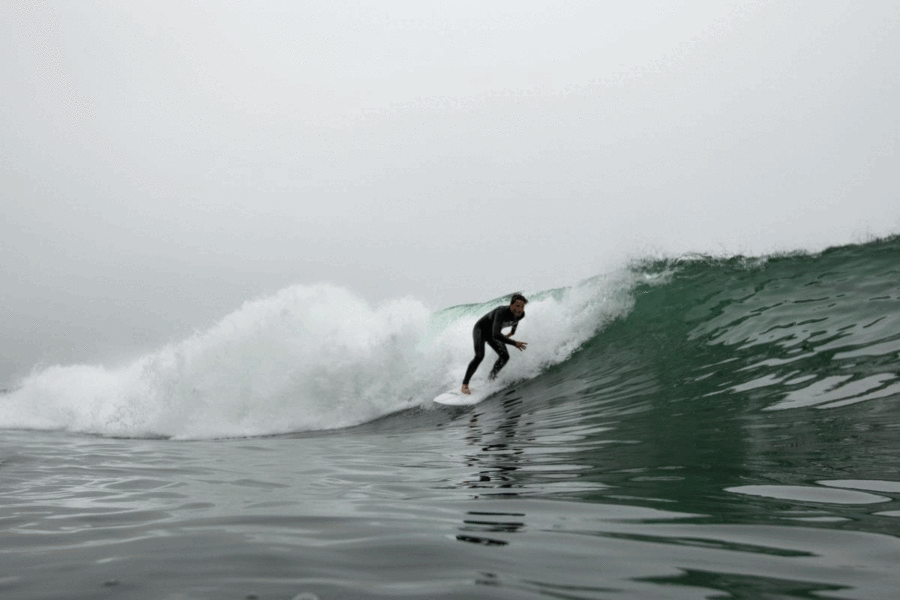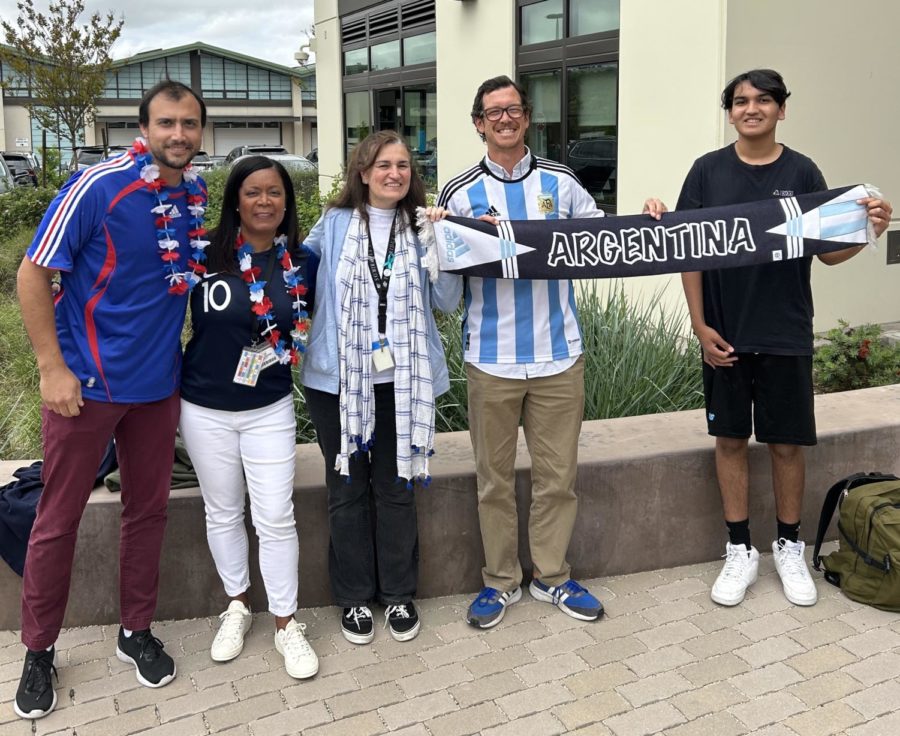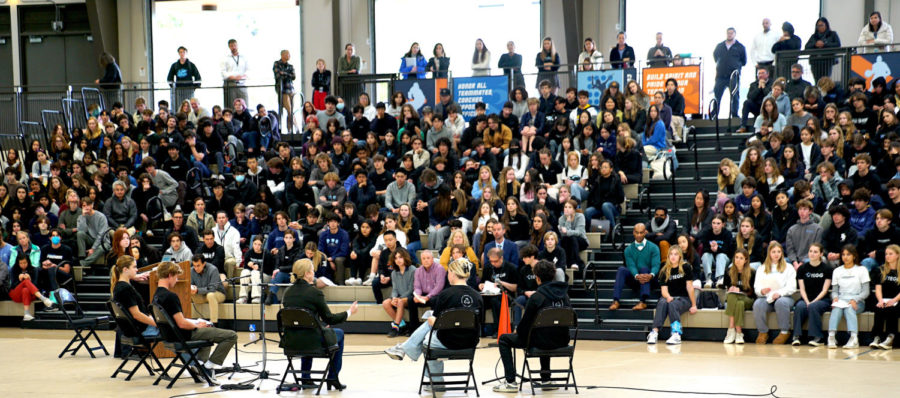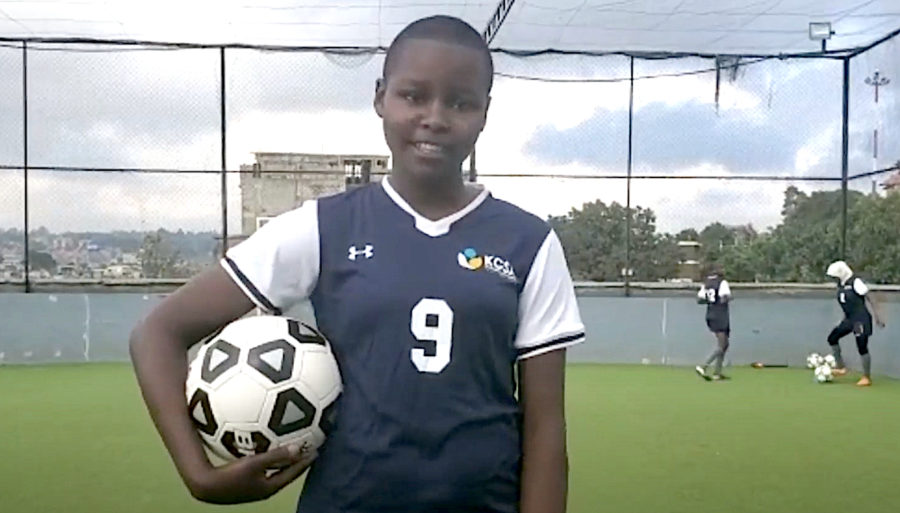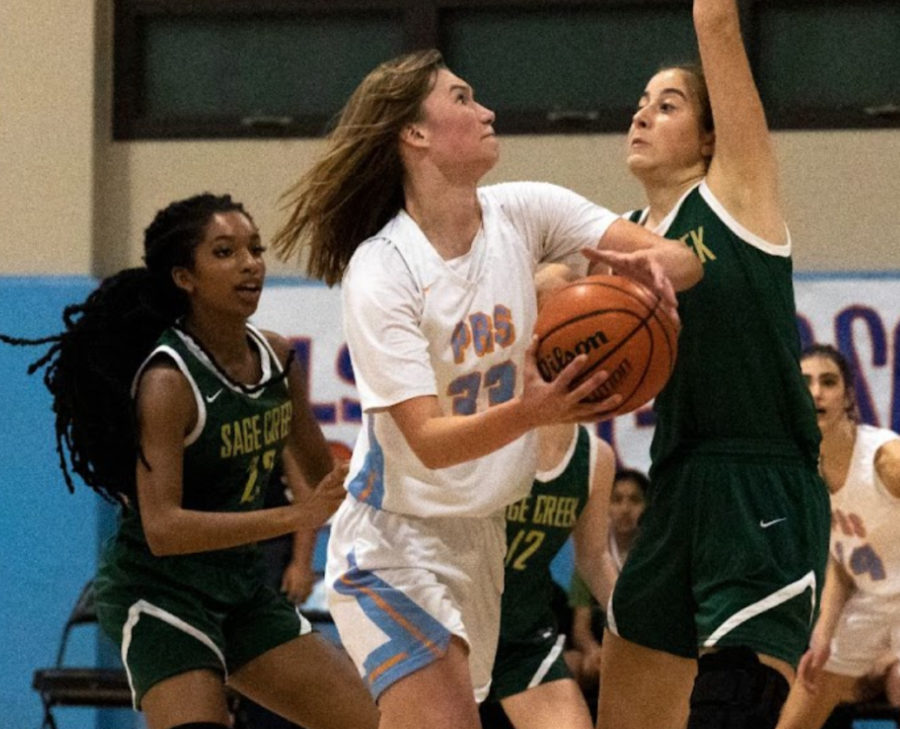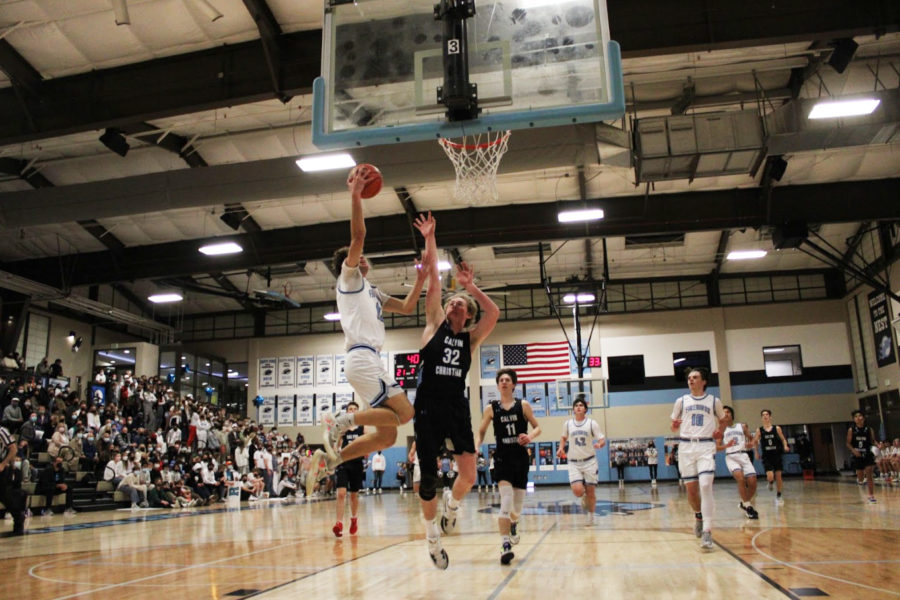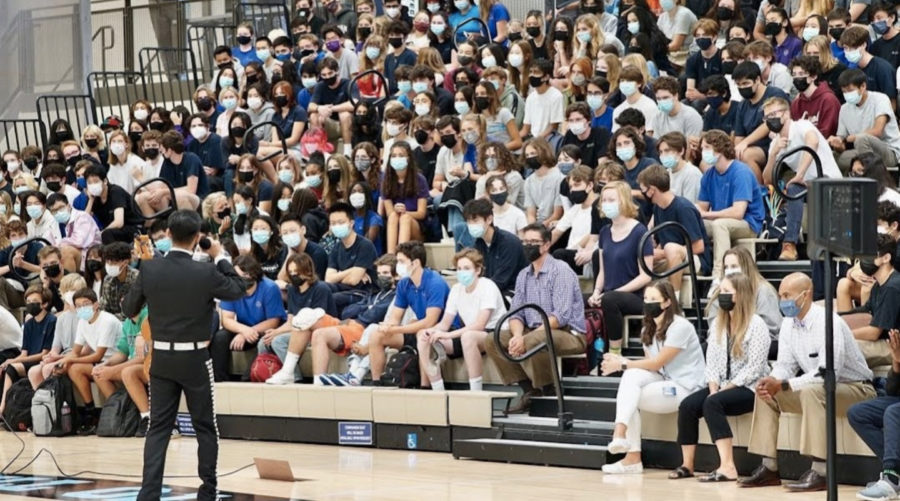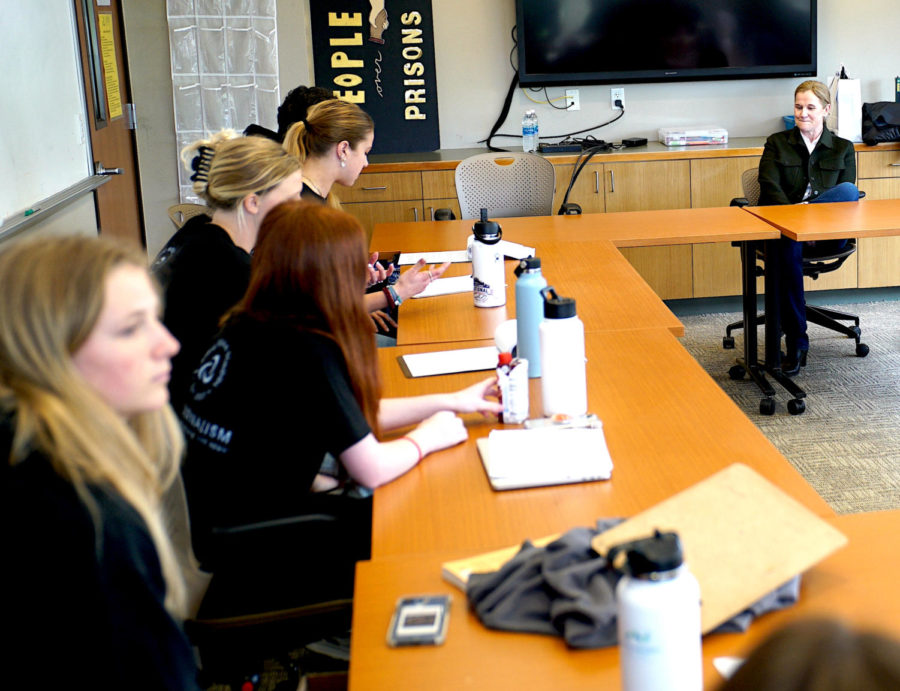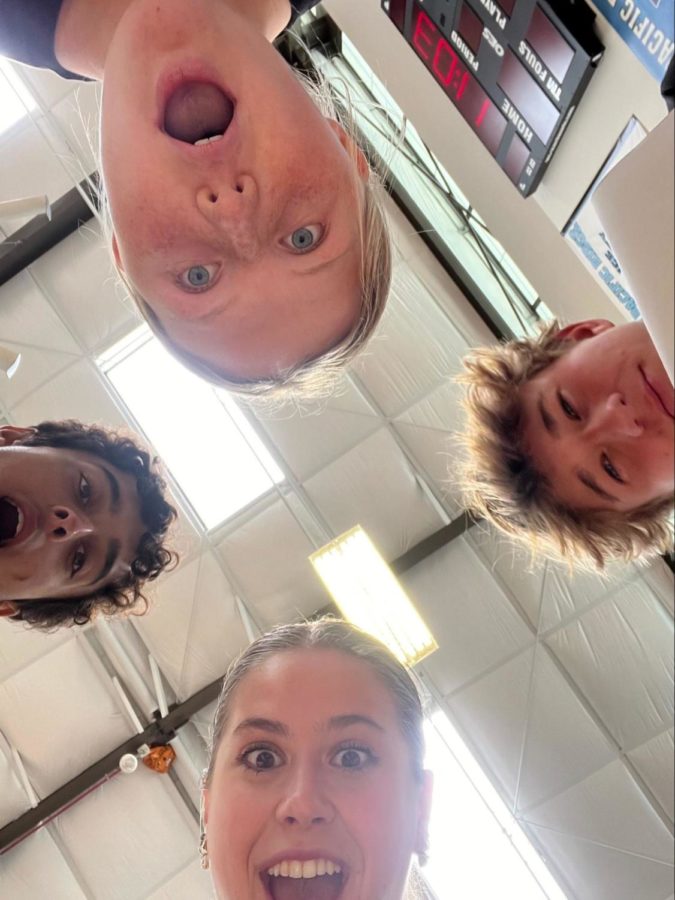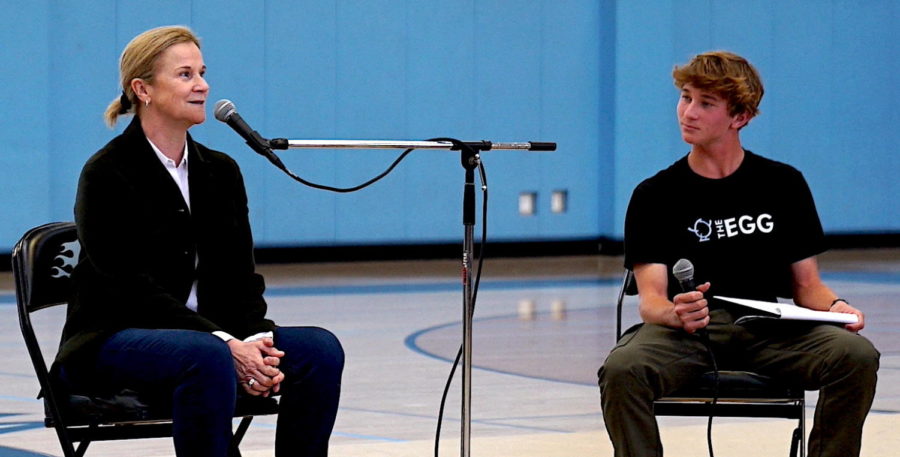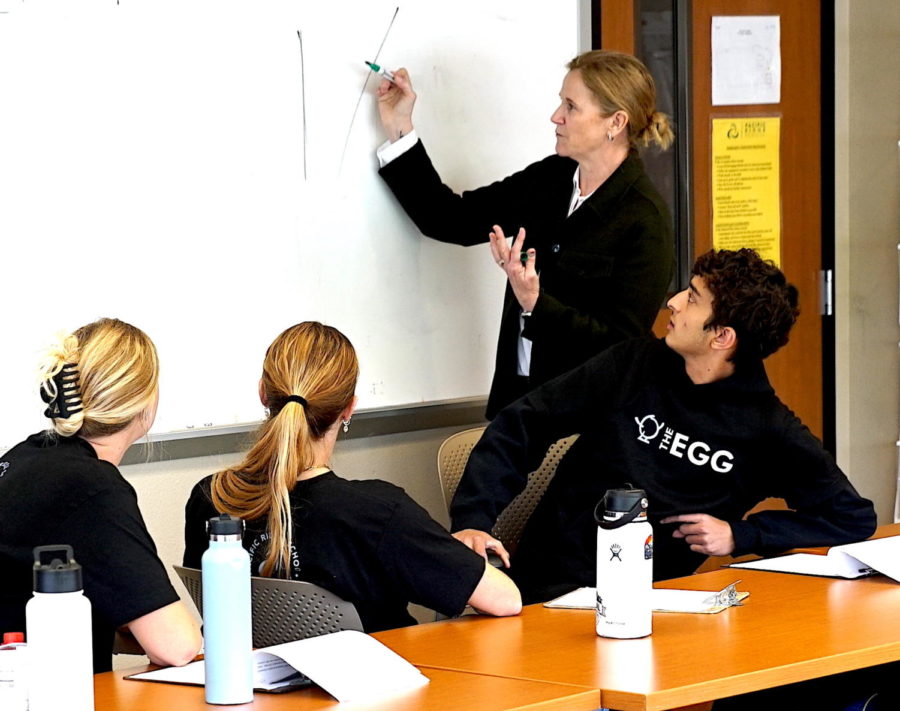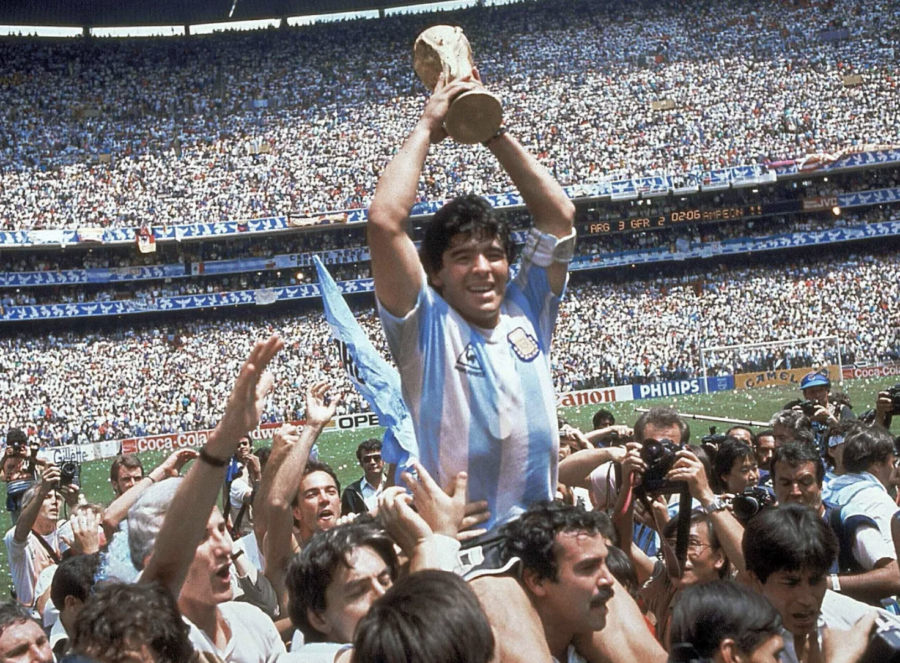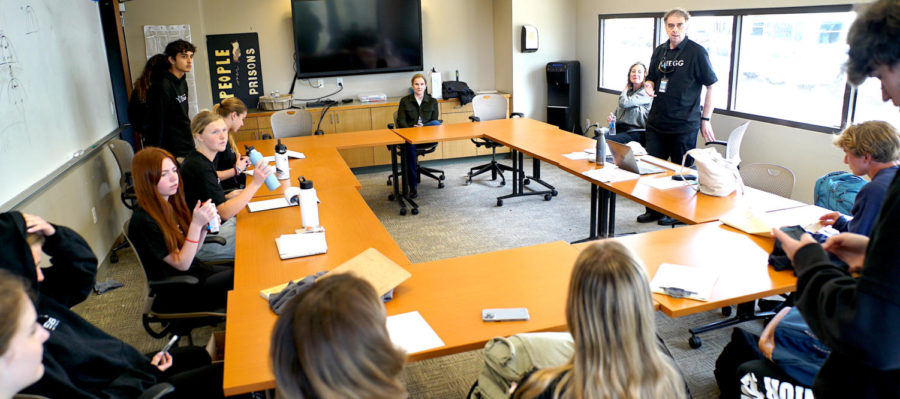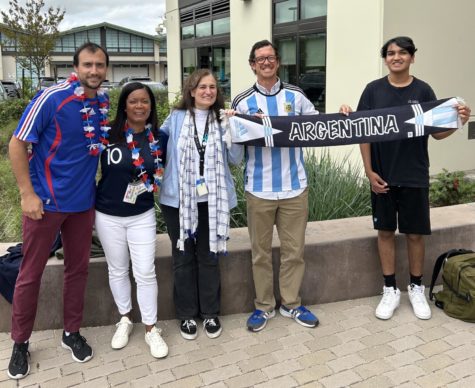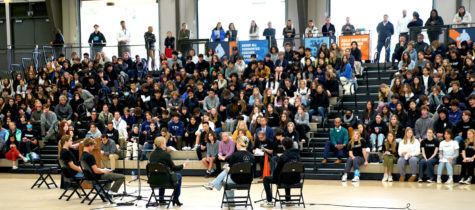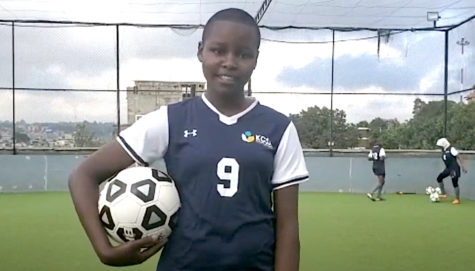Jill Ellis at PRS: Part 5
Starting a New Franchise in the National Women’s Soccer League & Building a New Future in San Diego.
photo by Kris Captanis (PRS Communications)
The PRS Journalism team backstage with Jill Ellis.
Question #13: Last season the San Diego Wave had the most successful first season of any new franchise ever in the National Women’s Soccer League. You made a deep run into the playoffs and set new attendance records for women’s professional soccer in the USA. As the Wave’s president, can you talk about how being a business leader, especially of a successful startup business, compares to coaching? What’s the same and what’s different?
I’ll give you a quick story about how I took this job. So I met with this guy, up in L.A., and he wanted me to consult for this soccer team project. He was starting this soccer team, he was the owner, he owned the franchise rights. And I was listening to him as he talked to me and he said, “Can you help us with this and that?” After hearing the vision, I turned to him and I said, “You know, I don’t want to consult. I want to run the whole damn thing.” And this guy’s a billionaire and he looks at me and I said to him, “Listen, I didn’t go to business school, but at the end of the day I know how to hire amazing people, empower them, and build a culture.” He said, “Well, you don’t have to sell me on that.” So I went home thinking, “I’m not going to get that job.” And he sent me an email and said, “That was a really bold ask, it was a bold offer, let’s go do this.”
So I took the job and—even though I took two national teams to big games, big tournaments, big moments—this was the hardest year in my professional life, this past year. For example I don’t know about ticketing—I mean I’m happy that there’s fans in the crowd, but my whole career I just went down here, just being like “Oh, there’s people in the stands” or “Oh, there’s billboards”—but I really took this job because my comfort level was coaching and I suddenly wanted to go do something that I’ve never done before because I knew I would be guaranteed to learn something. I knew it would stress me, I knew it would make me uncomfortable. But I said, “What the hell, I’m moving to California.”
So in a way it’s different because suddenly I’m having to hire people about information I’m not the expert on. I’m hiring a person to direct ticketing because I don’t know anything about ticketing, but I have to learn. So that was very challenging, but at the base of it what you’re dealing with, whether it’s sports or business, it’s people. So I hired amazing people—and when you hire great people, here’s the thing. You never want to be the smartest person in the room. You know why? It’s because you are going to learn from the people around you. So hire people that are better than you. And I did, I hired amazing people, I’ve learned a ton. I remember Googling up what something meant because, you know, it wasn’t something that was natural to me. But in the course of a year I learned a ton and I realized today that it’s about helping people achieve their potential. Whether it’s coaching, whether it’s business, it’s trying to help people achieve what they want to achieve.
Question #14: How have you managed to deal with creating a healthy work/life balance, especially when you’ve had such a high profile and high pressure career? And do you have any advice for young people like us about how to handle the work/life balance?
This is maybe not the answer you want. I’m not sure life is ever perfectly balanced, right? Like I always think when people sort of think of that they think of this perfect balance. And at times in my life there’s been work, and then there’s been trying to make sure that there’s enough time and space for everything else that’s important in my life, so I don’t know that life is perfectly balanced. I think part of what I’ve been able to do on my journey is because I have family around me, you know, my wife and daughter especially, that are very supportive of what I do—because, just to give you an example, I’ve been on the road 200 days a year. I’ve probably missed more of Lily’s birthdays than I’ve been at. So for a lot of people that would be really out of whack right, in terms of just how it looks. But if you have the connection and you have good support, and they recognize that when they were with me they had my attention and we’ve tried to do things together, and then I’ve also tried to include them on my journeys at certain moments.
I do think, especially for young people now, there’s such an expectation—you have hours of homework, if you play a sport, it’s this constant drive. Put things on your resume, get into college, like there’s this “drive, drive, drive, drive” that I do think that, for you as young people, it is important to make sure that you find something that’s not that you have to do, but that you care to do. Whether it’s sitting and playing a video game, whether it’s going out to a park with your friends, going to a concert, whatever it is, reading a book, I think that is critical—because when we’re always having to do things, we lose a little bit of part of ourselves of what that spirit is. You know when I made that decision to go into coaching I was like “I’m crazy for doing this,” to go make six grand a year, but it actually then filled me up. So that would be my advice. I’m not sure it’s always perfect, but make sure you find time to fill your well, figure out what that is. Because with any environment, whether it’s a relationship, whether it’s a business, whether it’s a team, for something to function well there has to be a certain level of positive energy.
The reality of your life, your team, your job, is there’s always going to be things that are going to try to lower that level. So as a coach, we lose a game, that’s going to lower the level. We get a big injury, it’s going to lower the level. So what you need to have are people around you that are putting more in than is coming out. That was the message to my team—and I had players sometimes, yeah they’re pissed they’re not playing, right they’re not starting—but I said to them, “If you can be a contributor more than you can be a drain, you can be a part of this program.” And this is saying, you know, relationships—you are going to have arguments with your parents, there’s always going to be something, but it’s really what you put in more than you take, and that’s the same for you as a person. To be healthy you’ve gotta maintain a certain level of how you feel, there’s always going to be a bad test, a breakup, there’s always going to be things that are taking out. Find ways or people around you who can help fill you up. God, I’m like preaching to you right now—I feel like I’m a mom to all of you at this point!
That is the end of The Egg’s interview with Jill Ellis. To return to the top page of Jill Ellis at PRS, click here.
To read about the experiences of PRS student journalists when staging the Jill Ellis event, click on the following links for reflections by Gwen Laats, Mykelle Brainard, Nolan Agresti and Evan Buchholtz.

